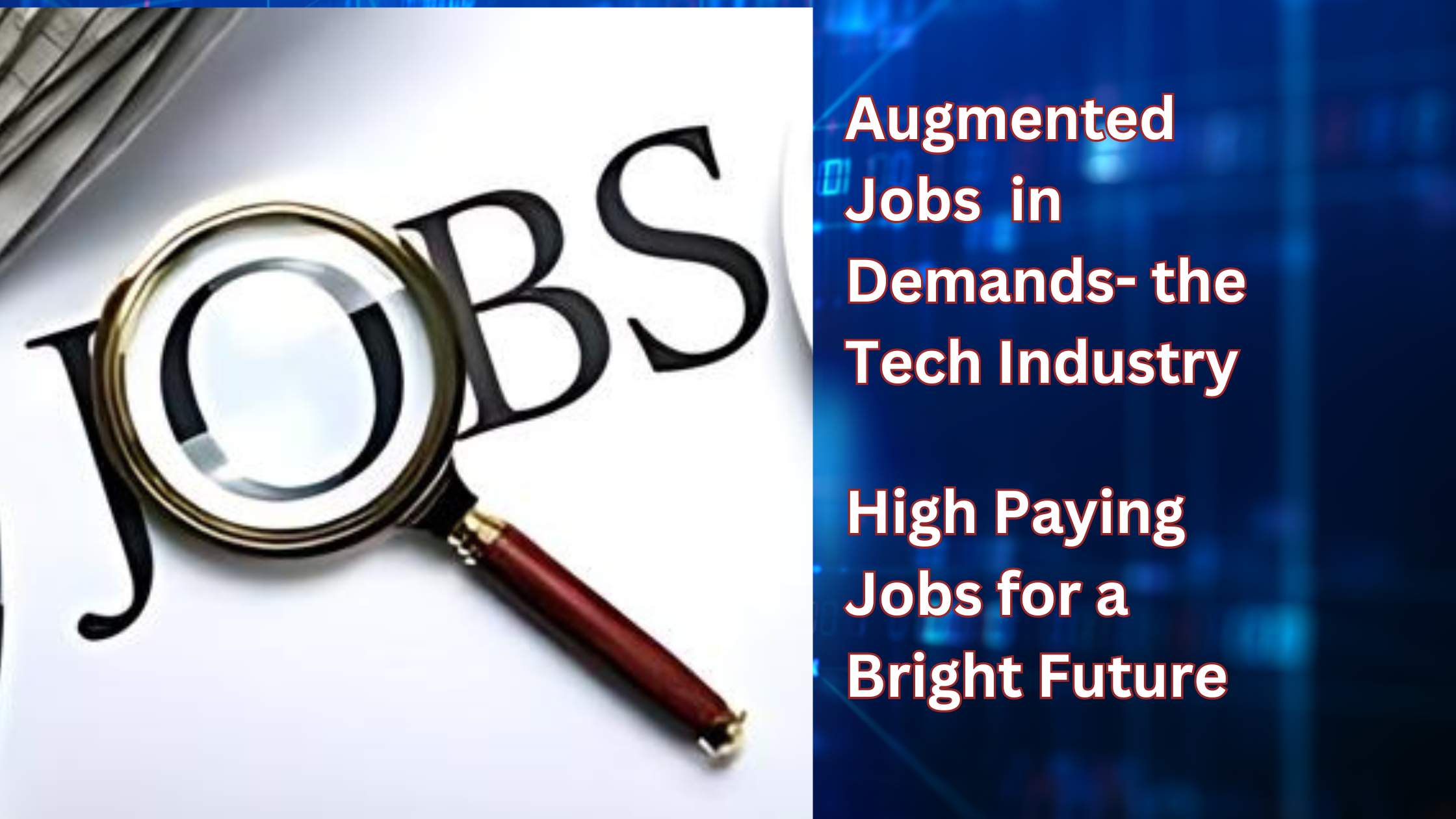Introduction
Augmented Reality Jobs. Augmented Reality (AR) is transforming the tech landscape, offering a myriad of new opportunities and revolutionizing various industries. From gaming and entertainment to healthcare and education, AR is creating an immersive experience that is reshaping the way we interact with the world. This surge in AR technology has led to an increased demand for skilled professionals who can develop, manage, and innovate within this field.
The Rise of Augmented Reality Jobs In Demand Of
AR overlays digital information onto the real world, enhancing the user’s perception and interaction with their surroundings. The technology has gained significant traction, with major companies like Apple, Google, and Microsoft investing heavily in AR development. This growth is driven by the technology’s potential to enhance user experiences, improve operational efficiency, and create new business opportunities.
Key Industries Embracing Augmented Reality Jobs In Demand Of
1.Gaming and Entertainment: Augmented Reality Jobs has revolutionized gaming by creating immersive and interactive experiences. Games like Pokémon Go have shown the potential of AR to blend digital content with the real world, attracting millions of users globally.
2.Healthcare: Augmented Reality Jobs is being used for medical training, surgical simulations, and patient care. Surgeons can visualize complex medical procedures, enhancing precision and reducing risks.
3.Education: Augmented Reality Jobs applications are transforming education by making learning more interactive and engaging. Students can explore 3D models of historical sites, scientific concepts, and more.
4.Retail and E-commerce: Augmented Reality Jobs allows customers to try products virtually before purchasing, enhancing the shopping experience and reducing returns.
5.Manufacturing and Maintenance: Augmented Reality Jobs is used for training, assembly, and maintenance processes, providing real-time instructions and reducing errors.
In-Demand Augmented Reality Jobs
1.AR Developers: Skilled in programming languages like C#, C++, and JavaScript, AR developers create applications and software that integrate digital content with the real world.
2.UX/UI Designers: These professionals design user-friendly interfaces and experiences that enhance AR interactions.
3.3D Artists and Modelers: They create realistic 3D models and animations used in AR applications.
4.AR Content Creators: Content creators develop engaging and interactive AR experiences, often collaborating with marketers and advertisers.
5.AR Project Managers: They oversee AR projects, ensuring they are delivered on time and within budget, while meeting quality standards.
6.AR Hardware Engineers: These engineers develop the hardware components, such as AR glasses and headsets, needed to support AR applications.
7.Data Scientists and Analysts: They analyze data generated by AR applications to improve performance and user experience.

Skills Needed for AR Jobs
Programming Knowledge: Proficiency in languages like C#, C++, JavaScript, and Python is crucial.
Experience with AR Platforms: Familiarity with AR development tools like Unity, Unreal Engine, ARKit, and ARCore.
3D Modeling and Animation: Skills in 3D design software like Blender, Maya, or 3ds Max.
UX/UI Design: Understanding of user experience principles and interface design.
Problem-Solving Abilities: Strong analytical skills to troubleshoot and optimize AR applications.
Collaboration: Ability to work effectively in multidisciplinary teams, including developers, designers, and marketers.
The Future of AR Jobs
The future of AR jobs is promising, with continued growth expected across various sectors. As technology advances, new roles and specializations will emerge, creating even more opportunities for professionals in the field. The integration of AR with other technologies like Artificial Intelligence (AI) and the Internet of Things (IoT) will further expand its applications and demand for skilled workers.
Conclusion
Augmented Reality is revolutionizing the tech industry, creating new opportunities and transforming various sectors. The demand for AR jobs is on the rise, driven by the technology’s potential to enhance experiences, improve efficiency, and generate new business opportunities. As AR continues to evolve, professionals with the right skills and expertise will be in high demand, shaping the future of this exciting field.
READ MORE INFORMATIVE ARTICLES GO TO OUR HOME PAGE

